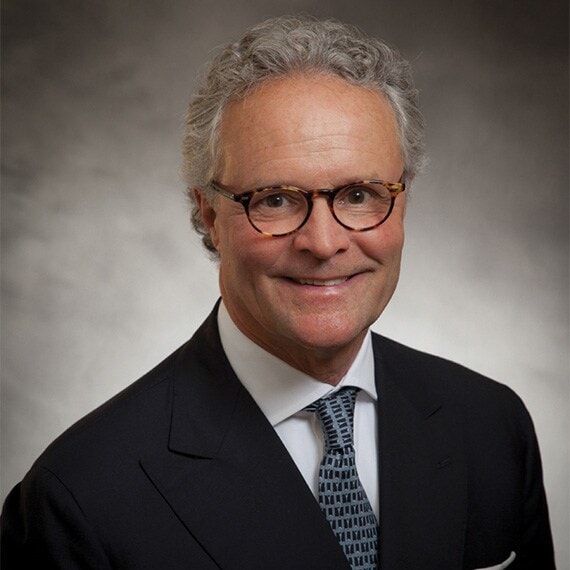PMI believes that with the right regulatory encouragement and support from civil society, cigarette sales can end within 10 to 15 years in many countries.
While Philip Morris International Inc. (“PMI” or the “Company”) is widely known as a cigarette company, in 2016 it announced its new purpose: To deliver a smoke-free future by focusing its resources on developing, scientifically substantiating, and responsibly commercializing smoke-free products that are less harmful than smoking, with the aim of completely replacing cigarettes as soon as possible. These innovative alternative products do not burn tobacco or create smoke, and therefore emit significantly lower levels of carcinogens and other toxic substances than cigarettes.
Building on the Board’s Letter to Shareholders and the Statement of Purpose in PMI’s 2017 and 2020 Proxy Statements respectively, we reaffirm PMI’s purpose and acknowledge that, as the Company continues to transform its business and organization, its core effort to provide smoke-free alternatives that appeal to today’s adult smokers—and to work hard to convince them to switch—will not be enough. The Company needs to continue earning the trust and active cooperation of a host of stakeholders, from supply chain partners to regulators and public health authorities.
A smoke-free future is attainable, and the benefits it can bring to the people who would otherwise continue to smoke, and hence to global public health, are enormous. However, the Company cannot succeed alone. Together with governments and civil society, we can maximize this opportunity by achieving a consensus that smoke-free alternatives, when subject to proper government oversight and regulation, are part of a sound tobacco policy.
A smoke-free future is attainable, and the benefits it can bring to the people who would otherwise continue to smoke, and hence to global public health, are enormous.
Smoking causes serious disease, and the best way to avoid the harms of smoking is never to start or, for those who smoke, to quit. For decades, tobacco control has focused on strict fiscal, marketing, and other measures to deter initiation and to encourage cessation. These must be continued. Nevertheless, while smoking prevalence rates continue to slowly decline, the World Health Organization projects that, due to population growth, the estimated number of 1.1 billion people who smoke tobacco products today will remain largely unchanged by 2025.
Nicotine, while addictive and not risk-free, is not the primary cause of smoking-related disease. The primary cause is the harmful chemicals emitted while burning tobacco and contained in the smoke. Eliminating combustion from nicotine-containing products is the way to significantly reduce their toxicity. Thanks to rapid advances in science and technology, and a strong PMI commitment, these products are now a reality.
In 2016, with the full support of the Board of Directors, the Company announced its new purpose of delivering a smoke-free future. Since then, the Company has fully aligned its employees with this purpose and swiftly shifted its organizational focus and resources to smoke-free alternatives. The Company is essentially disrupting its traditional business from the inside out and is leading the industry in this unprecedented transformation.
Eliminating combustion from nicotine-containing products is the way to significantly reduce their toxicity.
PMI’s smoke-free product portfolio currently includes heat-not-burn products, nicotine-containing vapor products, and oral nicotine products, all without combustion. Their development and manufacturing follow high standards of quality and consistency.
The Company is committed to scientifically substantiating the harm reduction potential of its smoke-free alternatives compared to cigarette smoking, including through rigorous preclinical and clinical assessments and sophisticated systems toxicology. Our scientific findings are publicly available and peer-reviewed, and we have submitted many of our findings to regulatory authorities, including the U.S. Food and Drug Administration. The totality of the scientific evidence makes the Company confident that switching completely to smoke-free products is likely to present less risk of harm than continuing to smoke. Post-market surveillance is necessary to continue building this confidence and, over time, quantify the reduction in morbidity and mortality through epidemiology.
To be clear, these smoke-free alternatives are not risk-free and should not be used by youth or adults who would not otherwise continue to smoke or use other nicotine products. The Company must market its smoke-free alternatives responsibly to minimize any unintended use while maximizing the switching of adult smokers who would otherwise continue smoking.
While cigarette sales today remain the largest part of PMI’s business in most countries, this is changing rapidly. The Company is actively accelerating the decline of cigarette smoking beyond what traditional tobacco control measures can achieve alone. To make its progress both measurable and verifiable, the Company developed a set of bespoke key performance indicators called Business Transformation Metrics. This set of metrics and related goals, which PMI reports on periodically, allow stakeholders to assess both the pace and the scale of its transformation and showcase how it is allocating resources away from its traditional cigarette business, aiming to base success on a future where it no longer makes or sells cigarettes.
The Company is actively accelerating the decline of cigarette smoking beyond what can be achieved by traditional tobacco control measures alone.
Although the Company’s transformation journey started with a vision centered on the critical mission of phasing out cigarettes, this is not its sole or ultimate end goal. Researching and developing noncombustible alternatives that are scientifically substantiated to be less harmful than cigarettes is the first step. Broadening access for adult smokers while simultaneously and deliberately working to phase out cigarette smoking completed the equation of its smoke-free purpose. In the process, the Company has expanded its social, human, intellectual, and manufactured capital in ways that allow it to go a step further, moving from a value proposition centered on doing less harm toward one where it can seek to have a net positive impact on society.
PMI is now actively working to expand its purpose and evolve into a broader lifestyle, consumer wellness and healthcare company, extending its value proposition and innovative capability to commercialize products that go beyond tobacco and nicotine. This is built on two key growth areas: (1) wellness products, where the Company is developing and looking to commercialize scientifically substantiated consumer health products and solutions with the aim to improve people’s lives (2) healthcare products, where it has already committed resources to its development pipeline of over-the-counter and prescription products.
This is part of a larger transformation that puts science, technology, and sustainability at the heart of PMI’s future by building on the Company’s expertise and investment in aerosol chemistry and physics, device technology, clinical research, and best-in-class preclinical safety and inhalation models.
PMI’s key stakeholder constituencies, which are fundamental to both the achieving of its purpose and to the pace of its progress, will be affected in different ways by PMI’s transformation. The Company will continue to engage and collaborate with relevant stakeholders to speed the transformation while mitigating negative consequences.
The Company will continue to engage and collaborate with relevant stakeholders to speed the transformation while mitigating negative consequences.
Consumers
Adult smokers and adult nicotine users are at the core of PMI’s business transformation. The public health benefit of smoke-free products depends not only on their potential to reduce the risk of smoking-related disease compared to continued smoking but also on how many adult smokers use smoke-free products as alternatives to cigarettes by as many adult smokers as possible. For smokers to switch to them, these alternatives must be accessible. Increasing accessibility means improving consumer awareness, acceptability, as well as the availability and affordability of our smoke-free products. Acceptability means delivering experiences that satisfy the needs of adult smokers while significantly reducing the exposure to the harmful and potentially harmful constituents of cigarette smoke. It is vital that we engage with adult smokers to raise awareness of smoke-free products and their benefits compared with cigarettes.
While PMI will continue to responsibly sell cigarettes as long as there is a significant legitimate demand, it will leverage its leading position to accelerate switching to better alternatives, continuing to focus its commercial efforts toward raising awareness of, and informing adult smokers in appropriate ways about, scientifically substantiated smoke-free products and the benefits of switching versus continued smoking. The Company carefully monitors the results of its marketing to minimize any unintended use of its smoke-free products by nonsmokers, especially youth.
In addition, PMI’s new businesses will leverage its know-how and capabilities in areas such as inhalation and aerosolization to create better products to target unmet medical and consumer needs and deliver a better experience and enhanced products for consumers and patients.
Employees
PMI’s ability to accomplish its purpose depends on the skills, dedication, and relentless efforts of its employees. The Company’s focus on a smoke-free future and long-term opportunities in wellness and healthcare has enhanced its ability to attract the new talent needed to support its transformation. The Company compensates its employees fairly and provides important benefits. It supports them with enriching job experiences, training, and education to help them develop new skills and maximize their employability in a rapidly changing world. The Company treats employees with respect, dignity, care, and fairness. It fosters diversity, inclusion, equal opportunity, and equal salary policies to ensure PMI’s workforce reflects modern society.
The Company is ready to support an industry-wide gradual phaseout of cigarettes as soon as a majority of smokers in a country have switched to scientifically substantiated smoke-free products.
Regulators
Regulators can decisively accelerate the industry’s transformation toward, and the speed at which adult smokers switch to, smoke-free products by implementing risk-proportionate regulations and taxation for all nicotine-containing products and by providing smokers with accurate information. PMI is committed to engaging transparently with regulators, sharing its scientific research and post-market data. The Company is ready to support an industry-wide gradual phaseout of cigarettes as soon as a majority of smokers in a country have switched to scientifically substantiated smoke-free products. PMI believes that with the right regulatory encouragement and support from civil society, cigarette sales can end within 10 to 15 years in many countries.
Public Health Community
The public health community is, unfortunately, polarized on the issue of smoke-free products. Without question, their work to discourage youth and nonsmokers from starting to use any tobacco or nicotine product and to encourage cessation should continue. At the same time, when better alternatives to cigarettes exist, the discussion should not be whether they should be made available to the more than one billion people who smoke today, but how fast and within what regulatory framework to maximize their adoption while minimizing unintended use. The Company is urging this important stakeholder group to seize the immense opportunity that smoke-free products present for advancing public health within the current generation of smokers. PMI asks the public health community to scrutinize its smoke-free products, to provide feedback for improvement, and to be open to considering that PMI’s purpose aligns with the societal goal to change the health trajectories of the people who smoke.
Supply Chain
People working in the Company’s supply chain around the world, including tobacco farmers, rely on PMI for a substantial portion of their income. PMI deals fairly and ethically with its suppliers and is dedicated to acting as a good partner to other companies, large and small, that help us meet PMI’s mission. PMI recognizes that smoke-free products differ from cigarettes and entail change for some of its supply chain partners, and PMI is ready to help them in this transition.
Civil Society
Continued engagement and partnerships with civil society remain essential to the Company’s success. PMI respects the many communities and the environment around the world where it operates. PMI works hard to protect the environment through sustainable practices across its businesses, and to both address and prevent future social and environmental challenges, including reducing post-consumer waste (focusing on eco-design and circularity), tackling climate change, preserving nature, improving the quality of life of people in our supply chain, and fostering an empowered and inclusive workplace. The scope, metrics, and progress of these practices are outlined in PMI’s annual Integrated Report, published on PMI’s website.
Shareholders
The Company is confident in the core business growth prospects of smoke-free products and the significant additional long-term opportunity from innovating in wellness and healthcare. It is leading the new, highly promising category of smoke-free products
and leveraging its unique capabilities to capture further areas of growth. PMI is dedicated to ensuring its shareholders continue to receive strong and sustainable financial returns over time. We are aware of the growing tendency among some investors
toward exclusion and negative screening but do not believe these Strategics effectively drive positive change, especially with regard to convincing people who smoke to quit smoking or improve their lives. On the contrary, by investing in PMI and holding
the Company accountable to its purpose and targets, investors can combine positive societal impact with long-term financial returns. The Company welcomes suggestions, pressure, and support through engagement with both current and potential investors.
The Company understands the need to continue to build legitimacy and trust by being honest, respectful, fair and transparent, and by aligning actions with words across all areas of its business.
The Company understands the need to continue to build legitimacy and trust by being honest, respectful, fair, and transparent and by aligning actions with words across all areas of its business. To assess the impact of PMI’s current and future value chains on society and the environment, the Company regularly conducts sustainability materiality analyses and measures and reports its performance through financial, environmental, and social metrics that are key to a sustainable corporate strategy.
It is management’s responsibility to ensure that the Company’s purpose is achieved through the appropriate structures, systems, processes, and people. The Board oversees management’s efforts to enhance shareholder value responsibly and sustainably over the long term in ways that are consistent with the Company’s purpose. Transparency and engagement between the Board and management are paramount, and we are all working toward PMI’s successful transformation.
To better align with shareholder and other stakeholder interests in achieving its purpose, the introduction of the Sustainability Index has allowed the Compensation and Leadership Development Committee of the Board to enhance the Company’s compensation practices, explicitly linking it to sustainability performance and further ensuring a strong link between executive compensation and both short- and long-term performance.
In conclusion, PMI remains committed to accelerating the end of smoking and laying the foundations of a strong business in areas of wellness and healthcare as we strive to develop commercially successful products that have a net positive impact on society. This means not only transforming the Company to deliver on its purpose but also inspiring the industry to follow its lead.
PMI’s Board of Directors (as of March 27, 2025)

André Calantzopoulos

Jacek Olczak

Bonin Bough

Michel Combes

Dr. Juan José Daboub

Werner Geissler

Victoria Harker

Lisa A. Hook

Kalpana Morparia

Robert B. Polet

Dessislava (“Dessi”) Temperley

Shlomo Yanai
A Statement of Purpose is a declaration, issued by a company’s board of directors, that clearly articulates the company’s purpose and how to harmonize commercial success with social accountability and responsibility. It specifies within that purpose those stakeholders most critical to long-term value creation and sustainability. On March 24, 2022, PMI published its 2022 Proxy Statement, which contained a Letter from the Board of Directors that corresponds to PMI’s Statement of Purpose. The groundwork for the Statement of Purpose was laid in the 2017 Proxy Statement in a letter to shareholders from the Board of Directors announcing for the first time our company’s smoke-free vision. It was reaffirmed in the 2020 Proxy Statement.





